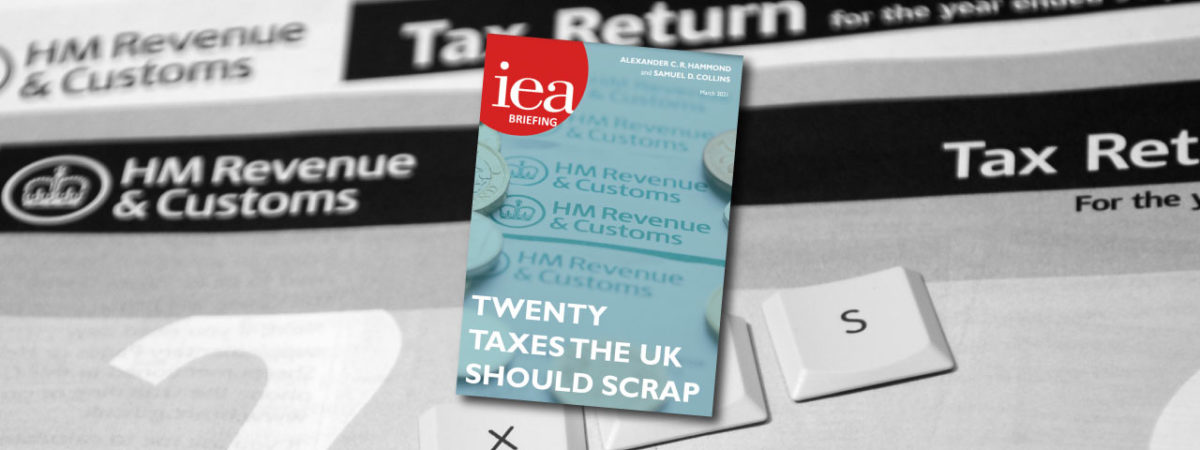A safer bet: Gambling and the risks of over-regulation
SUGGESTED



- The government has launched a review into British gambling law ‘to make sure it is fit for the digital age’. A coalition of activists has proposed a range of anti-gambling measures, including an advertising ban, low stake limits, a monthly spending cap, slower gameplay and a ban on VIP schemes, bonuses and inducements.
- Despite the perception of a gambling ‘epidemic’ in Britain, the number of people who gamble has not risen in the last decade and there has been no rise in the rate of problem gambling since records began in 1999. The number of children who gamble has halved since 2011. In real terms, the amount spent on gambling has declined since 2015.
- Many of the policies proposed by the anti-gambling coalition would be incompatible with the government’s stated aim of respecting ‘the enjoyment people get from gambling’ and ‘the freedom of adults to choose how they spend their money’.
- An advertising ban would make it more difficult for customers to distinguish between the regulated and unregulated sectors. It would deprive advertising platforms of an important source of revenue and stifle competition. There is very little evidence that it would have any impact on problem gambling.
- A ban on sponsorship would similarly hinder licensed operators from establishing their brands. It could have a devastating impact on many sports, such as lower league football, darts and snooker. There is no evidence that it would yield any benefits.
- A £2 stake limit for online games would have a similar effect as the £2 stake limit on fixed odds betting terminals, which is to say it would make them unplayable for many gamblers. This is not regulation in the normal sense, but a form of neo-prohibition which would likely drive players to unlicensed, unregulated and untaxed websites.
- Artificially long gaps between online bets would be boring and frustrating for players. As with the £2 stake limit, this policy can be seen as an attempt to deter gambling per se rather than tackle problem gambling. The technology exists to track harmful patterns of play and intervene. Sophisticated algorithms and timely interventions for the minority of high-risk gamblers are more effective than simplistic, blunt tools.
- Limiting the amount people can spend on gambling each month would be extraordinarily paternalistic. There is no other market in which consumers are restrained by the state from spending more than a certain amount of money. Although it has been suggested that the deposit limit could be lifted for those who can prove that they can afford it, it is not easy to see how this could be done without significant bureaucracy and the invasion of privacy. Ordinary people who want to gamble with their own money would be treated as if they were taking out a mortgage or living off the proceeds of crime.
- Protecting the vulnerable and preventing gambling becoming a source of crime are two of the three key objectives of British gambling law. The policies proposed by anti-gambling campaigners could undermine both of these by stimulating demand for unregulated websites that can be easily found via internet forums, search engines and affiliate sites. Many players will be unwilling to tolerate online content that has been made deliberately tedious and unexciting by limits on speed of play and stakes/prizes. Unregulated online casinos closely resemble their regulated competitors and, if advertising is also banned, consumers could have great difficulty distinguishing one from another.
- Use of unlicensed gambling websites is relatively rare in Britain, but it is not unknown. Unregulated websites are used by 4.5 per cent of UK online gamblers and 44 per cent are aware of at least one unlicensed site. Research from Sweden suggests that players of online casino games, slots, poker etc. are particularly willing to use unregulated websites. These are the consumers who would be most affected by the kind of policies currently being proposed in the UK.
- A better answer lies in technology. The ability of ‘Big Data’ to identify problem gamblers and prevent harm is unlike anything we have seen before. Regulated online operators use a range of practical harm reduction measures which advance the government’s objectives without infringing the rights of the average punter or handing a competitive advantage to the unregulated sector. Not every company uses their technology to prevent harm in the same way, but best practice could be made standard through regulation. It is these practical solutions, not the blunt tools of anti-gambling activists, that could be the focus of the government’s review.
Fullscreen Mode




